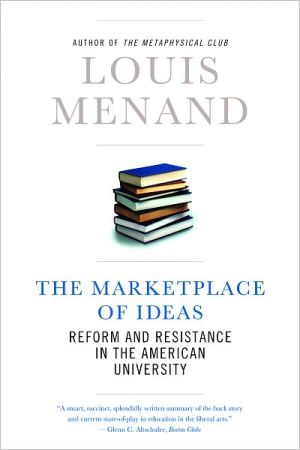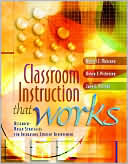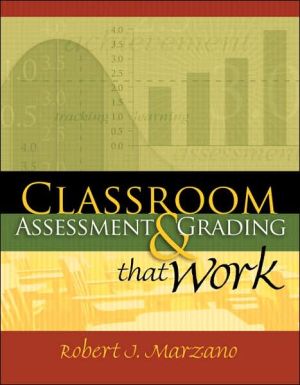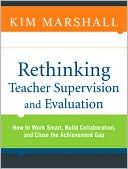The Marketplace of Ideas: Reform and Resistance in the American University
The publication of The Marketplace of Ideas has precipitated a lively debate about the future of the American university system: what makes it so hard for colleges to decide which subjects are required? Why are so many academics against the concept of interdisciplinary studies? From his position at the heart of academe, Harvard professor Louis Menand thinks he's found the answer. Despite the vast social changes and technological advancements that have revolutionized the society at large,...
Search in google:
"Crisp and illuminating . . . well worth reading."—Wall Street Journal Library Journal Like Charles Muscatine's Fixing College Education, below, this work examines issues related to the curriculum and the approach of the faculty; unlike Muscatine, Menand (English, Harvard; staff writer, The New Yorker) focuses on selective colleges and universities and especially on the humanities, explaining the importance of general education for all undergraduates, even though they may be more interested in career preparation than ideas. He links the difficulties for universities in promoting general education to tensions in academic careers emerging from faculty selection and training, uncertainties about disciplinary and interdisciplinary frameworks, and the strong frustrations in current academic career patterns. Menand puts these issues in a historical perspective in a thoughtful and graceful style but offers little hope that the structure of academic knowledge production and dissemination will support reforms. VERDICT An important, if traditional, view on the content of higher education. [See Prepub Alert, LJ 4/1/09.]
Introduction 13\ 1 The Problem of General Education 21\ 2 The Humanities Revolution 59\ 3 Interdisciplinarity and Anxiety 93\ 4 Why Do Professors All Think Alike? 127\ Conclusion 157\ Acknowledgments 159\ Index 163
\ Washington Monthly“A worthy and admirably succinct exploration of why colleges are so difficult to improve.”\ \ \ \ \ Library JournalLike Charles Muscatine's Fixing College Education, below, this work examines issues related to the curriculum and the approach of the faculty; unlike Muscatine, Menand (English, Harvard; staff writer, The New Yorker) focuses on selective colleges and universities and especially on the humanities, explaining the importance of general education for all undergraduates, even though they may be more interested in career preparation than ideas. He links the difficulties for universities in promoting general education to tensions in academic careers emerging from faculty selection and training, uncertainties about disciplinary and interdisciplinary frameworks, and the strong frustrations in current academic career patterns. Menand puts these issues in a historical perspective in a thoughtful and graceful style but offers little hope that the structure of academic knowledge production and dissemination will support reforms. VERDICT An important, if traditional, view on the content of higher education. [See Prepub Alert, LJ 4/1/09.]\ \








